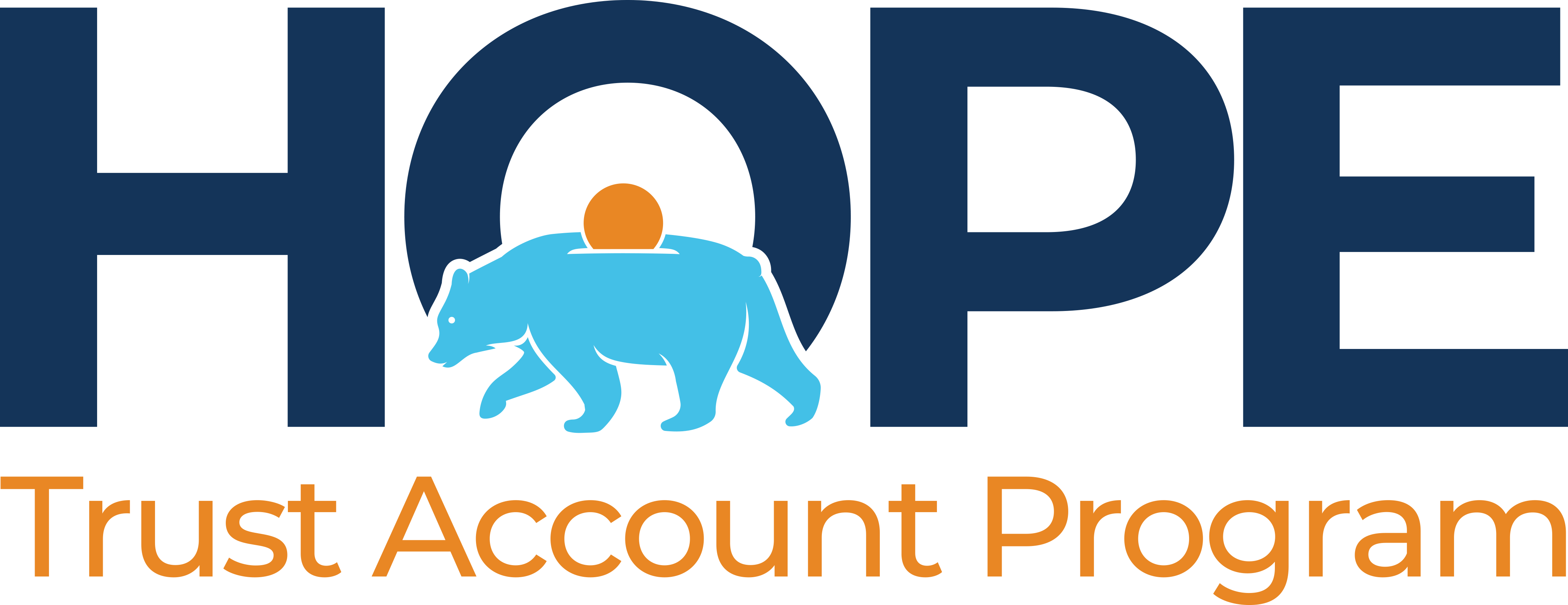The California Hope, Opportunity, Perseverance, and Empowerment (HOPE) for Children Trust Account Program

Quick Links
- HOPE Reports
- Board Members
- Meeting Agendas, Schedule and Materials
- Chapter 16.1 of WIC
- Bagley-Keene Open Meeting Act Guide
- Sign up to receive HOPE Trust Account Program information
- Regulations
- Request for Proposals (RFPs)
- HOPE01-24 Responses to Written Questions
- Request for Proposal (RFP) HOPE01-24
- HOPE01-24 Addendum No 1 (01-21-25)

The California HOPE for Children Trust Account Program was established through Assembly Bill 156 (Chapter 569, Statutes of 2022). It is codified in Chapter 16.1 (commencing with section 18997.5) of the Welfare and Institutions Code (HOPE Act).
This new program aims to close the racial wealth gap and confront the issue of intergenerational poverty. It creates a new financial investment program specifically catered to vulnerable children throughout the state (HOPE Program).
Thousands of children in California have lost their parents or primary caregiver to COVID-19. This sudden loss leaves children without a safety net and the resources they rely on to help them grow into happy, healthy adults. Studies also show that when young people learn they are receiving an investment, it changes their outlook about their future potential. This awareness can encourage positive choices, bolstering children’s chances at successfully building wealth and becoming financially independent, contributing members to their communities Accordingly, the HOPE Program will provide a trust account to an eligible child who lost their parents or guardian to COVID-19. The program will also be eligible for children who have been in the foster system for over 18 months.
The HOPE Act requires the HOPE Program board of directors (HOPE Board) to manage the HOPE program and develop investment. The HOPE Board must also advise the Treasurer on relevant data related to ongoing program enrollment. By February 1, 2023, the HOPE Act requires the Treasurer to convene a working group through the Treasurer’s Office to advise the HOPE Board. It also directs the HOPE Board to report to the Legislature, by February 1, 2024, information about future statutory and budget allocations. The report will outline resources needed to meet the goals of the HOPE Program and potential expansion to foster youth and low-income children.
Contact us at HopeForChildren@treasurer.ca.gov




